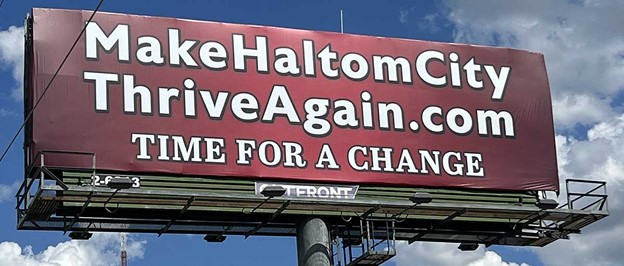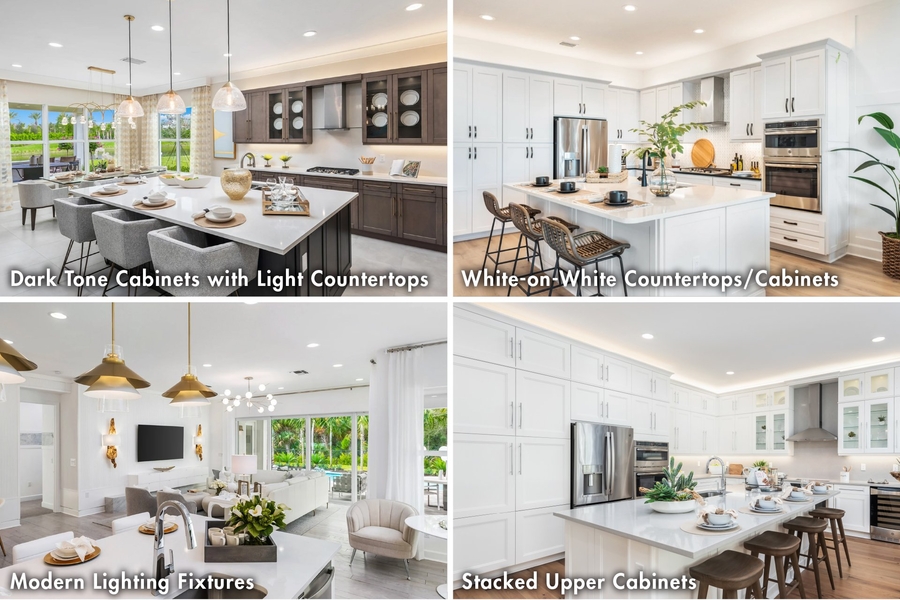In Haltom City, similar legislative action would help reoccupy older vacant buildings.
HALTOM CITY, TX, May 28, 2024 /24-7PressRelease/ — In an effort to prevent local municipalities from continuing to impose oppressive parking mandates, state lawmakers in Minnesota are considering legislation to put a stop to it.
That means Minnesota developers would no longer be forced to adhere to rigid, unwieldy and costly parking space requirements, which would encourage them to reoccupy vacant buildings. While this is a new effort for the state, Minneapolis has already seen success by taking comparable steps. City leaders there eliminated onerous parking requirements in 2021, resulting in an increase in redevelopment activity.
If it passes, the state legislation wouldn’t prevent businesses from building new parking spaces; it simply means municipal governments can’t require residential and commercial developers to allocate specific amounts of space for parking. Businesses and homeowners would oversee figuring out their own parking needs, instead of zoning laws making those decisions for them.
While local governments are able to adjust their own zoning laws, they can face difficulties. Smaller municipalities don’t always have the financial means to navigate the process, which includes research, meetings, debates, discussion, public hearings, and sometimes even arguments. That’s why changes in zoning regulations on the state level can provide an attractive solution.
In the meantime, several U.S. cities are forging ahead, revising or discarding burdensome parking laws that impede progress and growth.
City council in Austin, Texas recently approved an amendment eliminating parking minimums for most types of real estate, including homes, apartments, stores and restaurants. That means decisions about the amount of space allocated for parking are left up to owners, not the city.
In Haltom City, taking similar steps to remove outdated zoning regulations has the potential to not only spur redevelopment of long vacant properties, but to also help increase the availability of affordable housing, according to Joe Palmer, communications director for Haltom United Business Alliance.
“Haltom City needs to look into getting rid of its cumbersome parking mandates,” Palmer said. “They’re obsolete and they’re costly. What’s worse is they’re effectively putting the brakes on much-needed development in certain areas of town that really could use a boost.” He added, “This may not be right for all of the city, but it is a home run in the south and central parts of the city, which the city already identified a beleaguered zone when implementing a Tax Investment Reinvestment Zone (TIRZ).”
HUBA believes Haltom City’s parking requirements are not just burdensome; they’re detrimental to redevelopment. That’s why the group has urged Haltom City leaders to establish “Open Option Parking” to eliminate parking minimums in the city’s south and central areas, such as Denton Highway, and Carson, Belknap and Northeast 28th streets. This would allow developers, homeowners and businesses to decide the amount of onsite parking they needed to provide, based on their individual operations, activities or lifestyles.
“Across the country, we’re seeing more and more cities that are taking the plunge and getting rid of parking minimums,” Palmer said. “This vastly improves their ability to compete for the finite number of small business startups. Haltom City needs to get on board with this, in order to draw more small businesses back to South and Central Haltom City,” he added.
About Haltom City
Haltom City is a diverse, majority working-class city located between Dallas and Fort Worth in Tarrant County, TX. Haltom City is minutes from both the DFW Airport and Downtown Fort Worth with direct access to major highways including I-820 and SH-121. Due to an outdated and restrictive use matrix that discourages new business and deters growth, several areas of Haltom City have seen a decline in small businesses that provided goods and services and were a significant source of jobs, including the once-thriving automotive industry. However, Haltom City can reverse this trend and should prioritize development of inner-city land and vacant buildings, particularly in the major corridors close to the city’s center. The city is financially healthy, with a capable manager and staff who would like to see diverse business development occur, and need the support of the City Council to make it happen.
About Haltom United Business Alliance
Haltom United Business Alliance (HUBA) wants to give members of Haltom City’s business community an advocate and to keep those businesses informed about issues that affect them. They want to make sure Haltom City is business friendly and nurtures small business growth, including automotive businesses in the industrial districts, and bring more restaurants including breweries and eventually a major grocery store to the city. New businesses and growth in existing businesses will create a stronger tax base which will allow the city to pay its first responders wages that are competitive with surrounding cities while improving Haltom City’s facilities and infrastructure. HUBA believes that the southern and central parts of the city need a revitalization plan, to prevent further degradation in those areas, and wants that to happen before the inner-city experiences increased crime and more blight. As retail and office uses are in decline, it’s more critical than ever to attract new businesses. They believe that such a plan requires a strong relationship and support of the business community. Anyone who owns a business in Haltom City is eligible to join HUBA. Dues are $20 annually or $50 for a lifetime membership, and membership is 100% confidential. To join, contact Joe Palmer at (682) 310-0591 or by email at HUBAgrp@gmail.com. Visit the group’s Facebook at Haltom United Business Alliance.
About Make Haltom City Thrive Again
Make Haltom City Thrive Again is a movement to return prosperity to the older parts of South and Central Haltom City by luring the small businesses that have left over the past decades back to Haltom City. A vibrant business community not only allows for greater employment and choice of goods and services, but also can ease the tax burden on residents. The movement is led by local entrepreneur and business owner Ron Sturgeon. For more on Sturgeon’s ideas and background, check out his book, Keeping the Lights on Downtown in America’s Small Cities and watch the videos on his Facebook page. Ron is also the founder of the Haltom United Business Alliance (HUBA) which represents existing business interests in Haltom City and promotes growth of diverse businesses. HUBA is not a political action committee and does not endorse candidates. If/when Ron endorses candidates, he will do so on his own via the Make Haltom City Thrive Again organization.
—
For the original version of this press release, please visit 24-7PressRelease.com here





